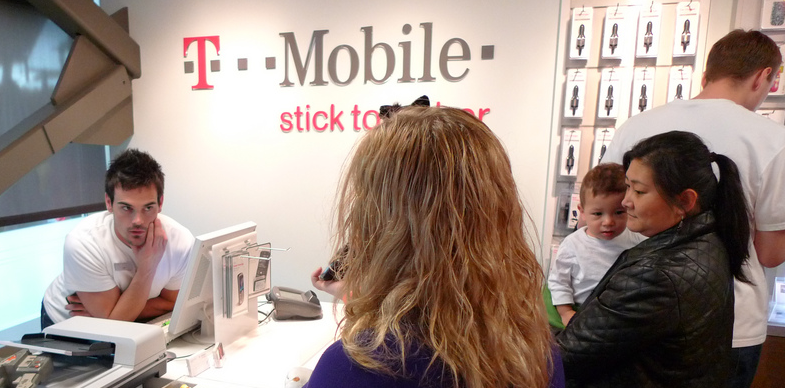T-Mobile Added More New Customers Than AT&T, Verizon Combined

(camknows)
A few years back when AT&T and T-Mobile parent company Deutsche Telekom were making their case for the doomed merger, they argued that the only way for T-Mobile to survive was for it to be sold to a bigger company; that it couldn’t compete with companies that already had 2-3 times the subscriber base.
But in the wake of that merger’s failure — and with the help of the $6 billion in cash and wireless spectrum it received from AT&T because the deal fell through — T-Mobile has repositioned itself as a disruptive player within the industry. It ditched phone subsidies, meaning customers who own their devices pay less each month, and it recently began offering luring customers away from other providers by offering to pay early termination fees for subscribers who were still in-contract.
T-Mobile is still the fourth-largest wireless company in the U.S. (and still faces a possible takeover bid by Sprint), but it’s showing analysts that its “un-carrier” model can work and that it’s offering something that consumers want.
“T-Mobile’s current subscriber momentum is undeniable,” Craig Moffett, of research firm MoffettNathanson LLC, tells Bloomberg. “Competitively, the change is mind-boggling.”
On that whole Sprint merger front, Bloomberg also reports that Sprint’s owner — Japanese company SoftBank — is prepping to make a push to acquire its smaller, spunkier rival after meeting with banks to discuss how to finance the deal, and that it could make a formal offer as soon as this summer.
We still think that the FCC and Justice Dept. are unlikely to approve a merger of any of the remaining four national wireless carriers, especially in light of what T-Mobile has been able to do on its own in recent years.
As we mentioned earlier today regarding reports that AT&T is interested in buying DirecTV, regulators would probably have less of a problem approving a tie-up between two semi-related businesses (like a wireless company and a satellite operator) than they would with a merger that would result in less competition in an already consolidated industry.
Want more consumer news? Visit our parent organization, Consumer Reports, for the latest on scams, recalls, and other consumer issues.

